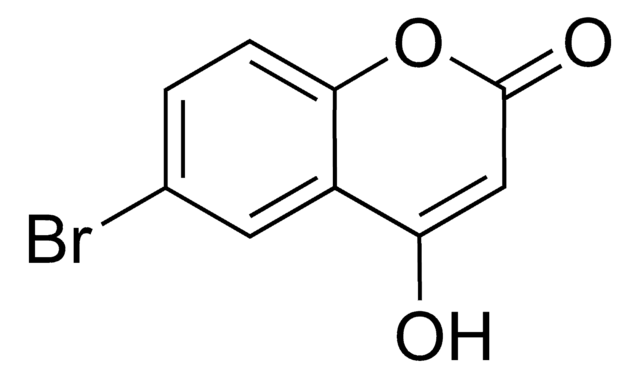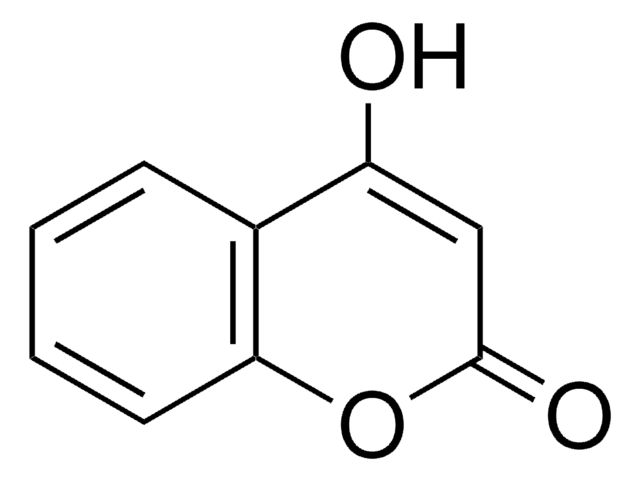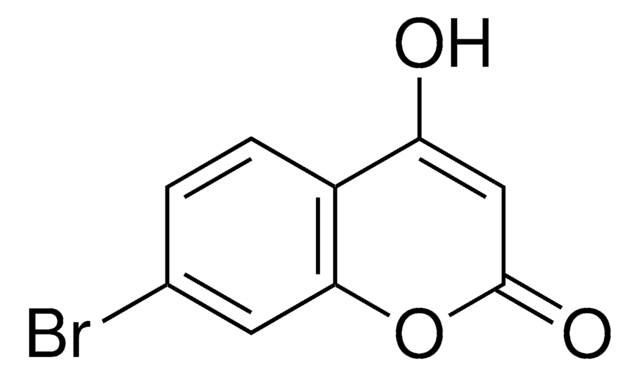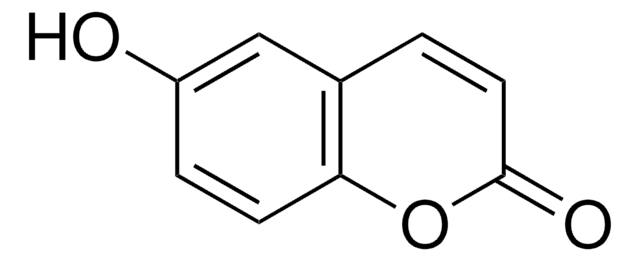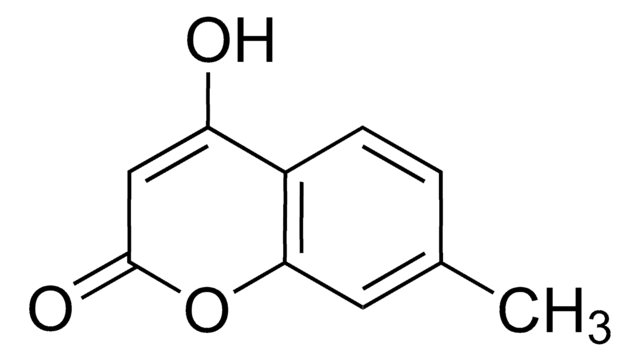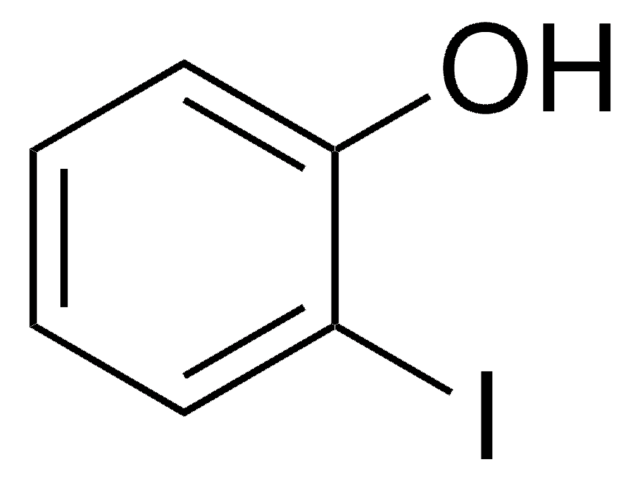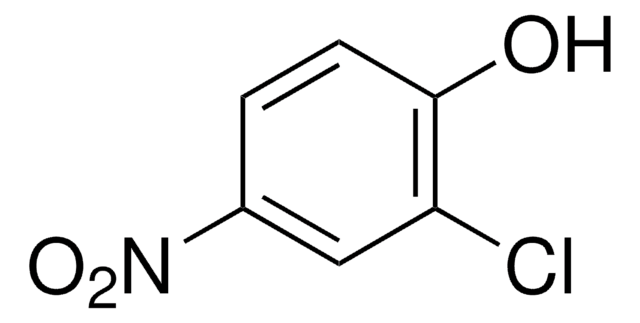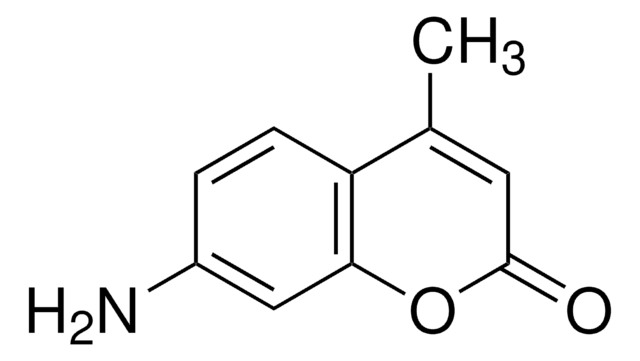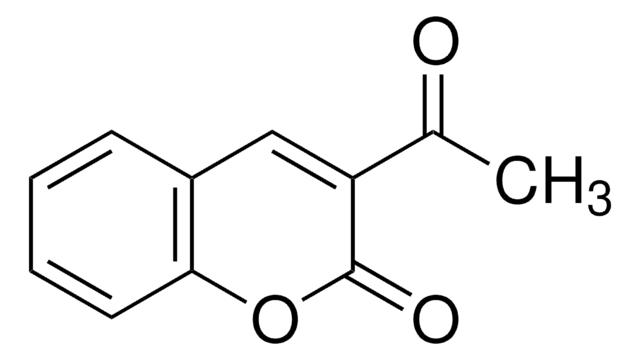All Photos(1)
About This Item
Empirical Formula (Hill Notation):
C9H5ClO3
CAS Number:
Molecular Weight:
196.59
MDL number:
UNSPSC Code:
12352100
PubChem Substance ID:
NACRES:
NA.22
Recommended Products
Quality Level
Assay
97%
mp
291 °C (dec.) (lit.)
functional group
chloro
ester
ketone
SMILES string
OC1=CC(=O)Oc2ccc(Cl)cc12
InChI
1S/C9H5ClO3/c10-5-1-2-8-6(3-5)7(11)4-9(12)13-8/h1-4,11H
InChI key
HUMZENGQNOATEQ-UHFFFAOYSA-N
General description
6-Chloro-4-hydroxycoumarin is a substituted 4-hydroxycoumarin. It participates in the Fe/Acetic acid (AcOH) catalyzed synthesis of various biologically active compounds.
Application
6-Chloro-4-hydroxycoumarin may be employed for the synthesis of 5-alkylidene-4-chloro-5H-1,2,3-dithiazoles. It may be employed for the synthesis of 6-[(coumarinyl-1-aryl-propionyl]benzoxazinones.
Signal Word
Warning
Hazard Statements
Precautionary Statements
Hazard Classifications
Eye Irrit. 2 - Skin Irrit. 2 - STOT SE 3
Target Organs
Respiratory system
Storage Class Code
11 - Combustible Solids
WGK
WGK 3
Flash Point(F)
Not applicable
Flash Point(C)
Not applicable
Personal Protective Equipment
dust mask type N95 (US), Eyeshields, Gloves
Choose from one of the most recent versions:
Already Own This Product?
Find documentation for the products that you have recently purchased in the Document Library.
Customers Also Viewed
Synthesis of 6-[1-(4'-hydroxycoumarin-3'-yl)-1-phenyl] propionyl-2H-[1,4]-benzoxazin-3(4H)-ones.
Jagath RG, et al.
Heterocyclic Communications, 10(1), 93-96 (2004)
Synthesis of new 5-alkylidene-4-chloro-5H-1, 2, 3-dithiazoles and their stereochemistry.
Jeon M-K and Kim K.
Tetrahedron, 55(32), 9651-9667 (1999)
Iron/acetic acid mediated intermolecular tandem C-C and C-N bond formation: an easy access to acridinone and quinoline derivatives.
Rajawinslin RR, et al.
Royal Society of Chemistry Advances, 4(71), 37806-37811 (2014)
Da-Wei Yan et al.
Molecules (Basel, Switzerland), 25(2) (2020-01-16)
Natural meroterpenes derived from phloroglucinols and β-caryophyllene have shown high inhibitory activity against α-glucosidase or cancer cells, however, the chemical diversity of this type of skeletons in Nature is limited. To expand the chemical space and explore their inhibitory activities
Our team of scientists has experience in all areas of research including Life Science, Material Science, Chemical Synthesis, Chromatography, Analytical and many others.
Contact Technical Service